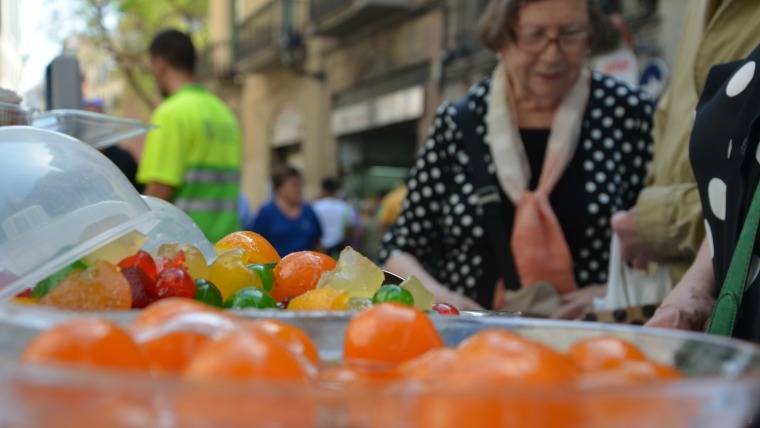22 things you didn’t know about the Sant Ponç Fair
It’s quite strange that a dynamic and modern city such as Barcelona should maintain an ancestral tradition like the Sant Ponç Fair, which is being held on 11 May in Carrer de l’Hospital. Located in the heart of Ciutat Vella, this medicinal-herb fair takes us back to the past, to a city where pharmacology did not yet exist. But at the same time is is also a really modern event that is in robust health; thanks to the rediscovery of natural remedies, the fair is as crowded as it used to be in centuries past.
- In Barcelona, the Sant Ponç fair dates back to the Middle Ages, a time when natural remedies were becoming increasingly popular.
- It seems that it may be rooted in the rituals performed in honour of Flora, the Roman goddess of flowers.
- This is why the fair is held at the end of Spring, when most medicinal herbs blossom and are at their best.
- In the 16th century, it was held on 11 May, which is Sant Ponç’s Day.
- Sant Ponç is the patron saint of herbalists and beekeepers, and there is a legend that links him to Barcelona.
- It says that, in the 3rd century, he arrived in the city while fleeing from his Roman pursuers. On seeing so much misery and suffering, he started to prepare potions with medicinal herbs, which he knew well. This gained him the respect and admiration of the people of Barcelona, and from that moment on, they started to hold herb fairs in his honour.
- During the fair, the saint’s image is brought out for a procession, decorated with medicinal herbs.
- Medicinal herbs are blessed during the procession, because it is believed that this enhances their curative properties. The superstition says that they must be kept under the bed all year, until the next Sant Ponç festival.
- There are other beliefs that claim that if you clean your house thoroughly on Sant Ponç’s Day, parasites will be kept away all year.
- As it is such an age-old festival, it probably attracted the ‘trementinaires’ to Barcelona, women who were knowledgeable about all the curative properties of herbs.
- The ‘trementinaires’ passed on their knowledge from generation to generation, but this traditional craft has since died out.
- The Sant Ponç Fair has been held in Carrer de l’Hospital since 1817, but before that, it was held in other places in the Raval neighbourhood.
- It has always been located around the former Hospital de la Santa Creu, which was the city’s main hospital for centuries.
- This year there will be around eighty stalls at the Sant Ponç Fair, some run by local residents who only sell herbs once a year.
- Medicinal herbs are the star attraction. They are sold in a wide variety of forms: as seedlings, freshly cut, dried, ready for making herbal teas…
- Medicinal herbs are also basic ingredients in ointments, salves, balsams, sweets, etc.
- Some stalls sell natural remedies from other cultures, especially traditional oriental medicines.
- The fair also offers a good selection of honey and associated products, such as jam, preserved fruit and syrup.
- In recent years, there has also been an increasing amount of natural cosmetics on sale, such as soaps, essential oils, all kinds of creams, balsams, exfoliants, etc.
- Because there has been a revived interest for natural therapies in recent years, the fair is still going strong and attracts large crowds.
- Phytotherapy is a branch of pharmacy concerning natural remedies and combining the properties of various herbs to form tisanes (herbal teas), ointments and preparations for vapour inhalation.
- The Raval fair is not the only one of its kind in the city. Other medicinal-herb fairs are held in Sarrià, el Farró and Poble-sec, on or around 11 May.






